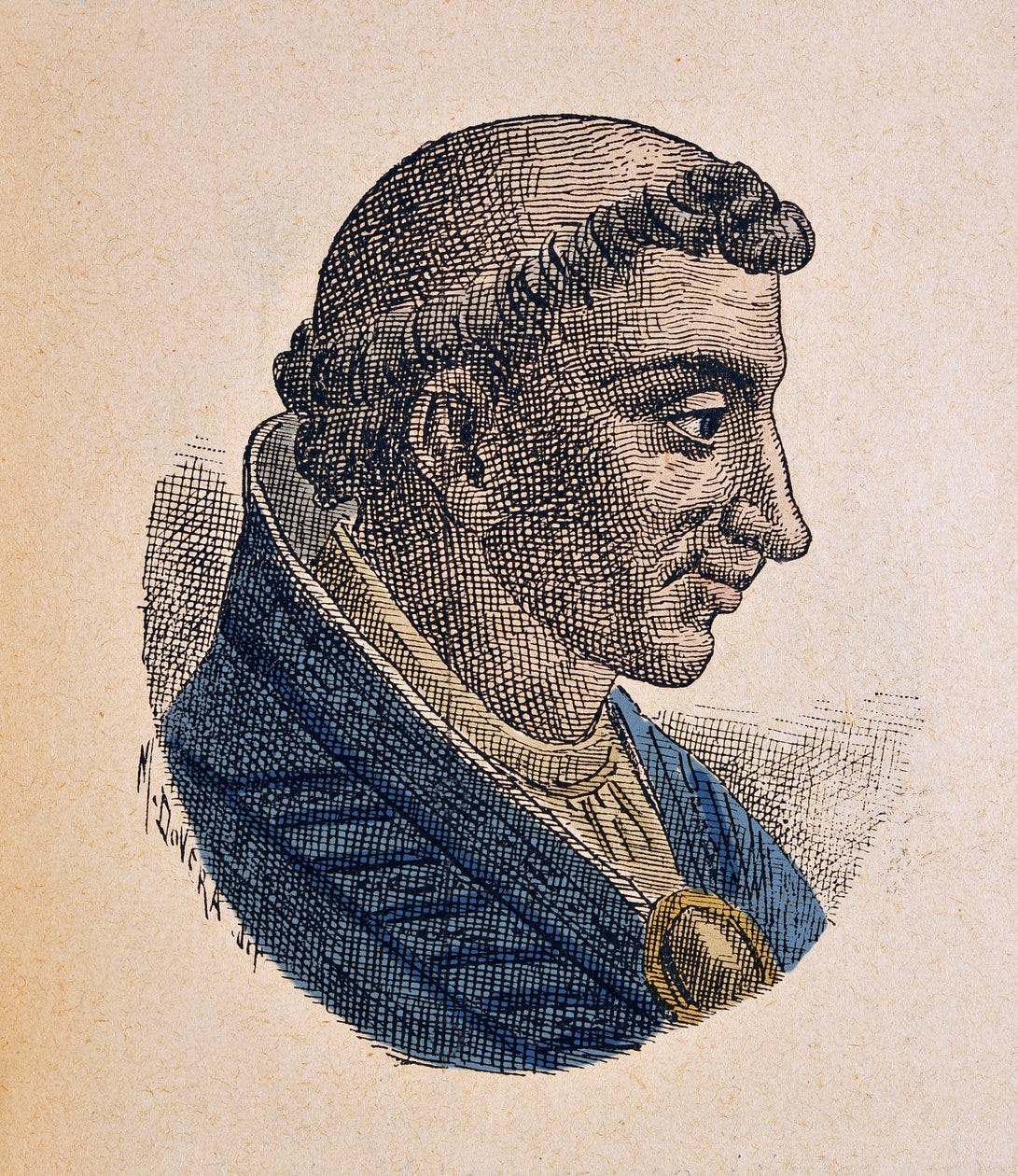Leo V: The Forgotten Shepherd
The Fifth of the Leos | Pope Leo V (903 AD)
“For I am become as a bottle in the frost: yet I have not forgotten thy justifications.”
— Psalm 118:83, Douay-Rheims
To write of Leo V is to write in the margins of history. His pontificate lasted only weeks—perhaps months—and ended not in death, but in imprisonment and obscurity. No great council bears his name. No theological treatise survives. He left no encyclicals, no mosaics, no reforms.
And yet he was Pope.
And that alone makes him a mystery worth pondering.
A Pope in a Time of Darkness
The ninth and tenth centuries are often called the Saeculum Obscurum—the “Dark Age” of the papacy. Rome was no longer ruled by virtue or vision, but by violent factions: noble families, corrupt clergy, and mercenaries who treated the throne of Peter as a prize for the taking.
In this world of intrigue and betrayal, Leo V was elected in July or August of 903 AD, following the death of Pope Benedict IV. He was a Roman, probably of low birth, and served as a simple parish priest in the region of Ardea, south of Rome. There is no record of him having held any high ecclesiastical office.
And then, suddenly, he was Pope.
The Coup of Antipope Christopher
But Leo’s pontificate would be cut short almost immediately. Within a few weeks, he was deposed and imprisoned by Christopher, a Roman cleric who installed himself as antipope—likely with the backing of powerful nobles or military factions.
Christopher claimed the papal throne for himself, and Leo V vanished into a cell.
We do not know what happened to him afterward. Some sources claim he died in prison, martyred by starvation or murder. Others say he survived for some time, stripped of power but not of dignity.
He never reclaimed his office. His reign, though legitimate, was so short and troubled that for centuries historians debated whether to count him at all.
And yet… he is Pope Leo V.
The Meaning of a Forgotten Pope
In a world obsessed with victory and visibility, Leo V stands as a sign of contradiction. His papacy is a parable—one with no moral neatly wrapped in glory, no triumphal legacy. He was chosen, betrayed, and silenced.
And that, too, is part of the history of the Church.
The papacy is not a chain of heroes. It is a procession of men, some saints, some sinners, some suffering quietly in the shadows. The dignity of the papal office does not rest on the charisma of the man who wears the tiara, but on the promise of Christ: “Thou art Peter…” (Matthew 16:18).
Even a pope who reigned only in chains is a successor of Peter.
“Blessed are ye when they shall revile you and persecute you and speak all that is evil against you untruly, for my sake.”
— Matthew 5:11, Douay-Rheims
We do not know Leo V’s thoughts in prison. But perhaps he prayed these words. Perhaps he remembered that the first Peter, too, was bound in chains—and still the Church stood.
The Lion in Silence
It may seem strange that one who bore the name Leo—the lion—would pass through history with barely a whisper. But there is a holiness in silence, a testimony in anonymity. Leo V reminds us that truth is not always triumphant in this world, and that the Church, though divine in her soul, bears deeply the wounds of time and politics.
He ruled nothing. He built nothing. But he held the keys, however briefly.
And in that flicker of papal light, the Church endured another night.


